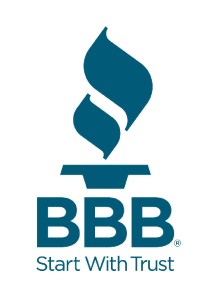| March 18, 2014
Breaking News. FICO has announced that it will release the next broadly available version of the FICO Scoring System beginning this summer.

INTRODUCING FICO ‘SCORE NINE”: Using a new, multi-faceted modeling approach, which combines sophisticated in-house analytic technology with insights gained over 50 years of building credit risk models, FICO ‘Score Nine’ will provide the best-in-class predictive power across all of the major credit product lines—home loans, auto loans, credit cards and personal loans—from loan originations, all of the way through managing and servicing the loan. FICO has also addressed lenders’ concerns regarding score consistency across the three major credit bureaus, and compatibility with previous FICO Score versions to ease adoption. The FICO Score continues to help keep lenders aligned with key compliance objectives and relevant government regulations. The FICO Score is the most widely used credit score in North America. Lenders purchased more than 10 billion FICO Scores in 2013, and 90 percent of all U.S. consumer lending decisions use the FICO Score.
WHO WILL UTILIZE THE NEW FICO SYSTEM?: The 25 largest credit card issuers, the 25 largest auto lenders and tens of thousands of other businesses rely on the FICO Score for consumer credit risk analysis and federal regulatory compliance. “To become a widely adopted industry standard, a credit score must work well across industries, across all lending product lines and across the entire credit lifecycle,” said James Wehmann, executive vice president of Scores at FICO. “The major changes in the lending environment over the last few years demanded that we take a different approach to building a score that will continue to perform consistently well in various situations. We devised an innovative approach to developing FICO Score Nine that enabled us to leapfrog our own industry-standard benchmark. Our goal is to continue to support a financial ecosystem that includes lenders, securitization investors, rating agencies, regulators and other stakeholders who need a common risk benchmark.” Source: NAMP Daily – www.nampdaily.com

HOMEPATH AND HOME STEPS OFFER FREE CLOSING COSTS AND OTHER INCENTIVES: Government-sponsored enterprises (GSEs) Fannie Mae and Freddie Mac recently introduced new incentives to bolster home sales through their HomePath and HomeSteps programs, respectively, which are designed to help the firms liquidate the real-estate owned (REO) properties they hold in their portfolios.
Specifically, Fannie Mae is offering up to 3.5% in closing cost assistance on HomePath properties available in 27 states during the FirstLook period. During the FirstLook period, owner-occupant or public entity buyers are able to submit offers on HomePath properties, giving them the opportunity to purchase homes without competition from investors.
Fannie Mae recently announced the extension of the FirstLook period from 15 days to 20 days. To be eligible for the incentive, the initial offer must be submitted between now and March 31, 2014, so there’s not a lot of time left to utilize this program (unless it’s extended). Homes using this incentive must also close on or before May 31, 2014.
The incentive will offer qualified buyers up to 3.5% of the final sales price to pay closing costs. In addition, home buyers have a choice of $500 incentives they can use towards condominium association dues, flood insurance premiums or the home warranty of their choice. To qualify for these additional incentives, the closing must settle on or before May 30, 2014. The promotion does not apply to investor purchases, auction sales, sealed-bid sales and bulk sales, Freddie Mac reports. Source: MortgageOrb, www.mortgageorb.com For a list of available properties, call your local Realtor or go to: http://www.homepath.com.

AN FHA UPDATE AND PREDICTIONS FOR THE UPCOMING YEAR: Following the first-ever Treasury draw required by the Federal Housing Administration this year, the agency says it is back on stable footing and does not anticipate requiring Treasury assistance in fiscal year 2015. As reflected in the Obama Administration’s proposed budget for the coming fiscal year, both FHA’s forward and reverse lending programs are expected to be cash flow positive with the Home Equity Conversion Mortgage program anticipated to have a negative subsidy rate at -0.23%. A positive credit subsidy indicates the program would require cash to cover losses.
In this case, however, the HECM program is expected to perform on its own, slightly above its break-even point. The earlier bailout to the tune of $1.7 billion was largely attributed to losses in FHA’s reverse portfolio. “The budget estimates the Mutual Mortgage Insurance Fund will have a positive capital reserve balance of $7.8 billion,” said FHA Commissioner Carol Galante of the entire fund outlook following the budget release. “We will not require a mandatory appropriation from the Treasury this year.”

FHA touted its performance and positive outlook in the coming year, pointing to achievements such as reducing chronic homelessness by 16% and assisting 450,000 homeowners facing foreclosure through loss mitigation assistance in the midst of last year’s budget sequester. “This is more remarkable given the context in 2013,” Housing Secretary Shaun Donovan said. “Given the sequestration that cut across the entire federal government budget, HUD was faced with finding ways to cut 5% from our budget with very little time to prepare and just seven months left in the fiscal year. We made some extremely difficult choices. We’re proud of what we did to provide best possible outcomes.” Source: Reverse Mortgage Daily – www.reversemortgagedaily.com
Congress’s lack of progress on reforming the U.S. housing-finance system shouldn’t be “an excuse” to delay rebuilding the market for private-label mortgage securities, a senior U.S. Treasury Department official said recently. “Many investors have told us that they can and want to take mortgage credit risk,” said Michael Stegman, housing-finance counselor to the Treasury secretary, in prepared remarks at a research conference in New York. Adding simplicity and transparency is a key first step, he said. “To get back to an efficient, responsible, and sustainable level of complexity, and to rebuild trust, the new issue non-agency market must first follow a path of greater standardization and transparency,” Stegman said. Federally controlled buyers Fannie Mae and Freddie Mac have been in a conservatorship since 2008, an arrangement that has lingered with U.S. lawmakers disagreed over the appropriate role for government in housing finance. Source: Market Watch – www.marketwatch.com.

EASIER QUALIFYING EXPECTED FOR FHA MORTGAGE BORROWERS: First-time and low-income borrowers may have an easier time qualifying for a Federal Housing Administration loan. Ginnie Mae, a government agency that issues bonds backed by FHA loans, reports that the average credit score on FHA-backed loans fell to 680 in 2013, and the average debt-to-income ratio rose to 40.3 percent — both indicators that credit may be easing. In comparison, Ginnie Mae reported in January 2013 that the average score was 701 and the debt-to-income ratio was 38 percent. “The FHA theoretically allows scores as low as 580,” the L.A. Times reports. “But lenders, buffeted by defaulted loans and demands that they buy back troubled loans that they sold, generally have set standards higher since the financial meltdown.” Source: The Los Angeles Times – http://www.latimes.com
A Note from Kristen: Actually FHA allows scores down to 500, but requires a down payment of 10% below 580. But many lenders do not want to underwrite loans under 640 (580 is the absolute minimum I have seen here in Charlotte, NC, and those loans also come with higher loan origination fees and interest rates). While many lenders have lowered minimum scores, FHA’s quality assurance initiatives ensure that lenders will still be underwriting their files under a microscope and looking at the loans carefully, because lenders now have to buy back their “bad” or defaulted loans if any errors are found in the original underwriting process.

Copyright © 2014 Realty Pros / New Home Buyers Brokers, Inc.
Kristen Haynes, Broker In Charge, GC, CMRS Web: www.NewHomesNC-SC.com
    
|